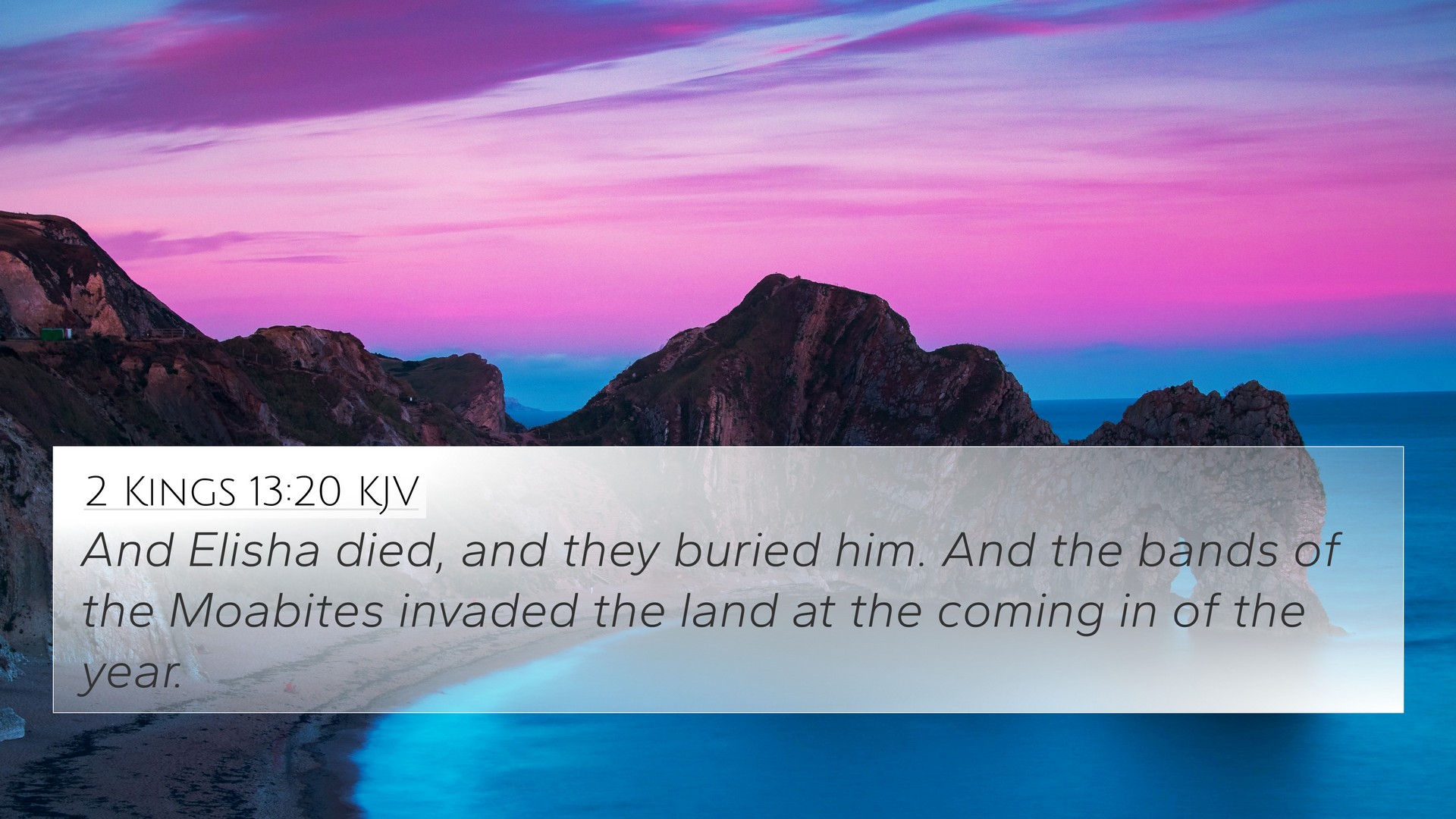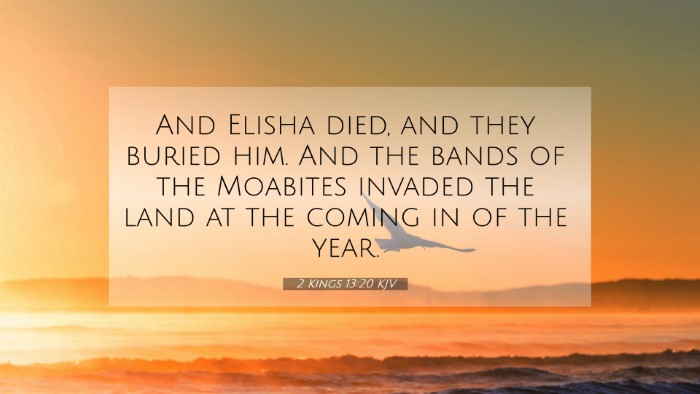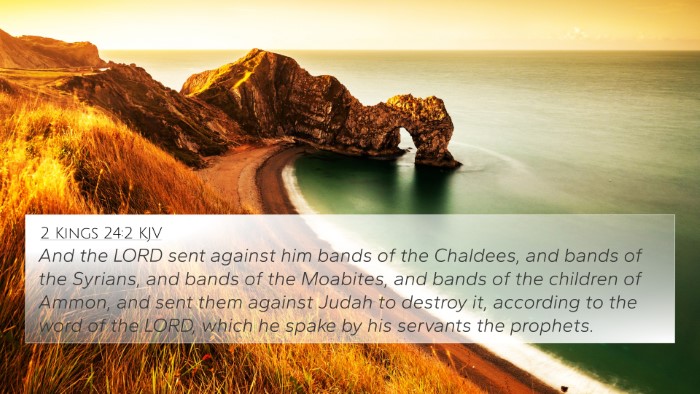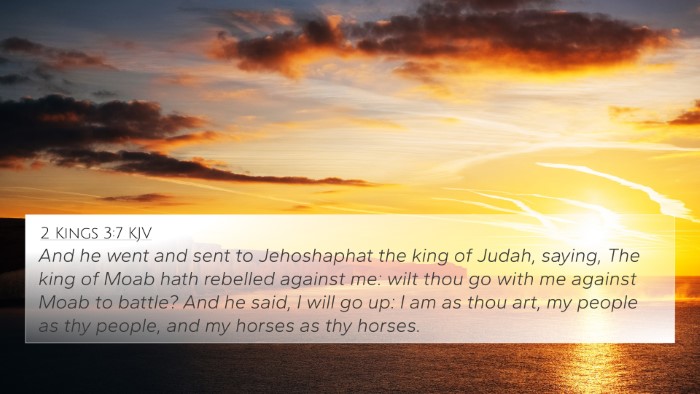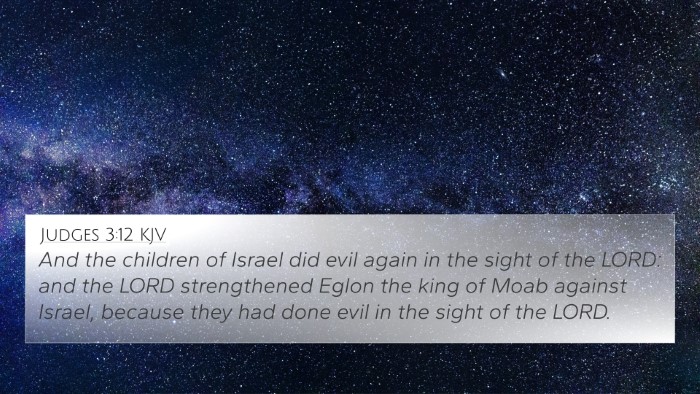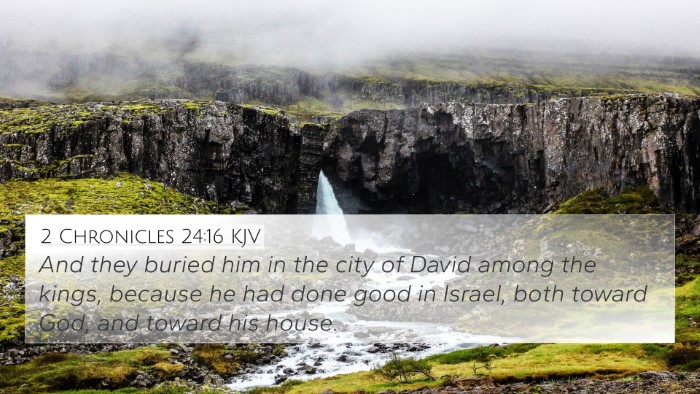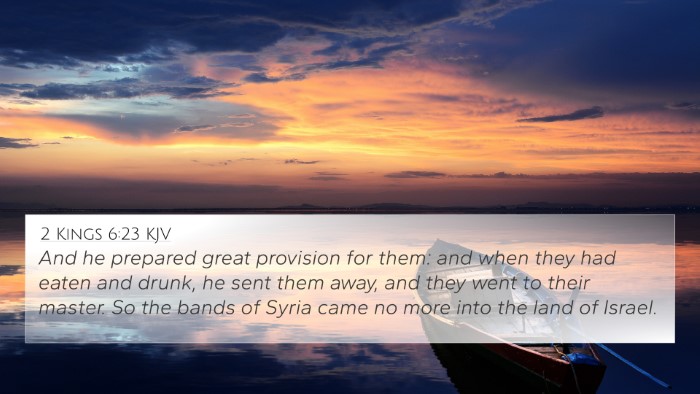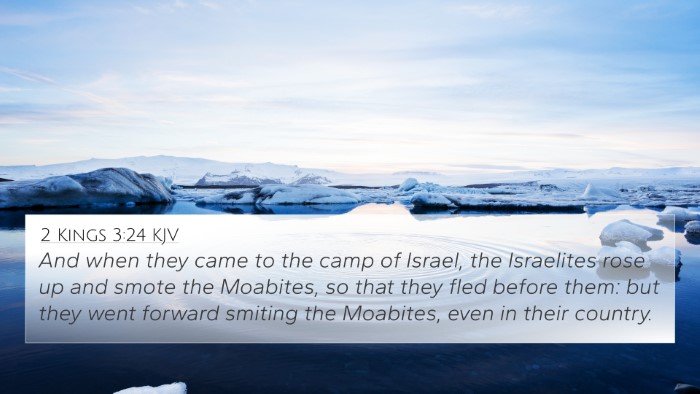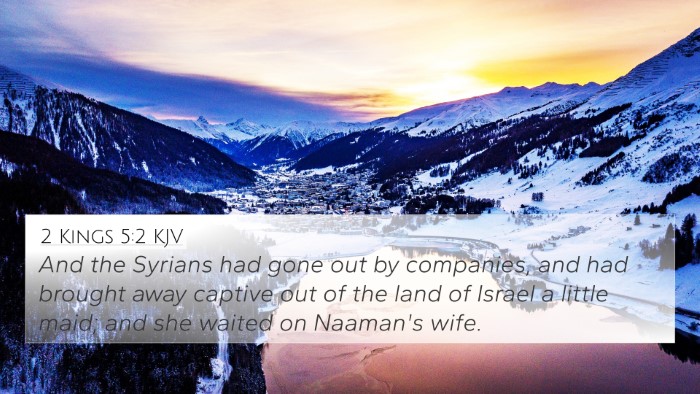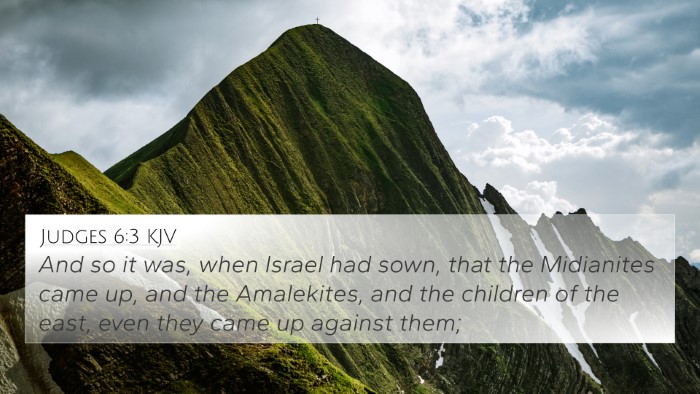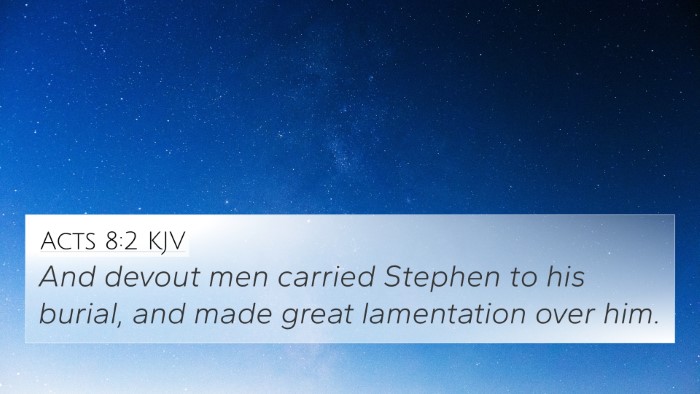Understanding 2 Kings 13:20
Verse Context: 2 Kings 13:20 states, "And Elisha died, and they buried him. And the bands of the Moabites invaded the land at the coming in of the year." This verse marks the end of the prophetic ministry of Elisha, highlighting the impact of his death on the nation of Israel and introducing a period of turmoil.
Summary of Meaning
This verse encapsulates significant themes in the Biblical narrative: the temporary nature of human life, the impact of prophetic figures, and the relentless nature of conflict in the world. Elisha, a prominent prophet who succeeded Elijah, had played a vital role in guiding and preserving Israel. His death signals a transition that would lead to challenges for God's people.
Insights from Public Domain Commentaries
Matthew Henry's Commentary
Matthew Henry reflects on the importance of Elisha’s ministry, noting that his death ended an era of profound prophetic influence in Israel. Henry emphasizes that Elisha's miracles and teachings were meant to strengthen the faith of Israel, and his absence would leave a void. The invasion by the Moabites is seen as a direct consequence of Israel's spiritual decline after losing their prophetic leader.
Albert Barnes' Notes
In his exposition, Albert Barnes highlights the timing of Moab’s invasion, suggesting it symbolizes God's judgment on Israel for their disobedience. He notes that the reference to the Moabites reflects the ongoing struggles Israel faced from surrounding nations, emphasizing the need for continual reliance on God's guidance through prophets.
Adam Clarke's Commentary
Adam Clarke discusses the significance of Elisha’s legacy, indicating that even after his death, Elisha’s influence continued. Clarke mentions that the burial of a great prophet serves as a reminder of mortality and the temporal nature of earthly life, encouraging believers to reflect on the lasting impact of their faith. The Moabite invasion is a stark reminder of how quickly peace can be disrupted when a nation turns away from God.
Themes and Cross-References
- The Mortality of Prophets: Ecclesiastes 3:2 - "A time to be born, and a time to die." This verse reflects on the natural cycle of life, echoing the theme of Elisha’s death.
- The Role of Prophets: Hebrews 1:1-2 - "God, who at various times and in various ways spoke in time past to the fathers by the prophets, has in these last days spoken to us by His Son." This verse emphasizes the importance of prophetic voices in conveying God's message.
- Divine Judgment: Jeremiah 17:27 - Here, God warns about the consequences of disobedience, similar to Israel’s plight after Elisha's death.
- The Continuation of God's Plan: Romans 11:29 - "For the gifts and the calling of God are irrevocable." This assures that God's plan continues despite human failures.
- The Burden of Warfare: Isaiah 2:4 - Prophecies about the coming of peace, contrasting with the chaos following Elisha’s departure.
- Spiritual Decline: 2 Kings 17:7-23 - The story illustrates how Israel repeatedly strayed from God, leading to ruin as exemplified by the Moabite invasion.
- The Call to Remember: Deuteronomy 8:2 - God commands His people to remember the lessons of their past, including reliance on Him through prophets like Elisha.
- Hope Amidst Trials: Isaiah 40:31 - Encourages waiting on the Lord for strength, pertinent to Israel in times of distress.
Cross-Referencing and Thematic Connections
Understanding 2 Kings 13:20 in light of its thematic connections provides depth to its interpretation. For those interested in Bible verse cross-references or linking Bible scriptures, the verse acts as a pivotal point, connecting the prophetic ministry of Elisha with the struggles Israel faced post-ministry.
Some practical tools for Bible cross-referencing can enhance one’s study:
- Utilize a Bible concordance to find thematic links between verses.
- Engage in cross-reference Bible study to identify clusters of related scriptures.
- Employ a Bible cross-reference guide for systematic exploration of themes.
Conclusion
In summary, 2 Kings 13:20 serves as a sobering reminder of the transition from prophetic leadership to the challenges faced by Israel, symbolizing broader themes of divine judgment, the fragility of human life, and the need for continuity in faith and reliance on God. For those exploring comparative Bible verse analysis or seeking answers about Bible verses that relate to each other, this verse offers rich insights for further contemplation.
